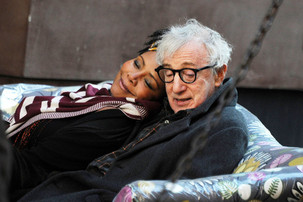
Do you know how Woody Allen makes his films? He has an idea, he pops it in a draw and then later, he goes back to the draw and says, in the best Woody Allen voice; “yeah, I'll make the one now”. It may not be the most conventional way, but it's his way and he sure does make some belters. I'm a big Woody Allen fan. He can do it all – he acts, he directs, he writes (Ed: he voices an Ant). For the DVD release of Fading Gigolo, here are his best films
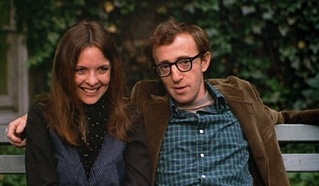
He averages a film a year, but Woody Allen's masterpiece will always be Annie Hall. What is most remarkable today about this film is the way Allen presents it. It's a movie about a relationship. But rather than taking a linear approach, Allen plays with time. We see the middle, the beginning, and the end. And not always in that order. Allen also breaks the fourth wall a lot and has many dream sequences and asides which add to the complexity of the characters. This is a highly autobiographical film and Allen pulls no punches. This movie is not about romance in the way that Breakfast at Tiffany's is. Rather, Annie Hall is a deconstruction of a romance. At times, it is funny and heart-breaking and always classic.
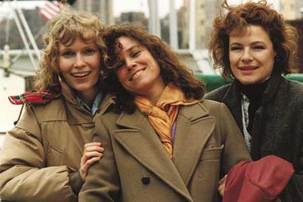
Life is the main theme of Hannah and Her Sisters; life that is filled with relationships, affairs, arguments, jobs, fears, desires and simply existing. The backdrop is Allen's beloved New York and it has never looked more realistic or stunning on camera. The way Allen is able to use the ugly back alleys as well as beautiful downtown architecture really is a stunning achievement. All this and I haven't even touched on the real treasure of this immaculate film: the performances and the writing.
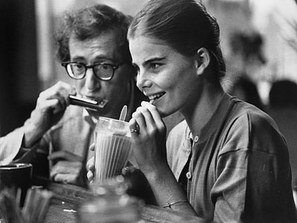
Manhattan is probably the archetypal Woody Allen film. Some of his other films may be better, like Annie Hall or Hannah and Her Sisters but, in Manhattan, all the elements of Allen's style are in perfect balance. There's the jazz, the neurotic, unsympathetic lead, the choice between stable and highly-strung women, the self-mocking humour (hilariously done in the opening voice-over,) the railing against intellectual snobbery and the deep unease with popular culture. His script is wit of the highest order. This is not gag-a-minute humour, but an altogether more acute art form stemming from character, some wonderful dialogue and a fair amount of darkness (I love the bit about Isaac trying to run over his ex-wife's lover). Allen is also prepared to turn his biting satire to personal issues, such as being Jewish.
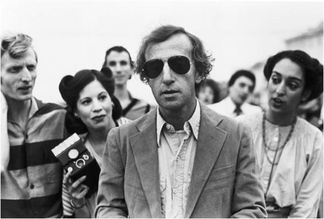
Imperfect, but it's still one of Woody's smartest scripts, with other incentives. And in Sandy Bates, the lead of his satire on celebrity, loves, and his usual themes of turmoil over life and death, is a sense that Woody Allen is doing one of two things (or both perhaps;) taking from his own life and thinly disguising characters and situations, or using his own public image in film's culture to look through the looking glass slightly at some of his popular themes.
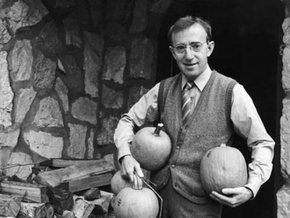
Woody Allen's genius, intelligence and wit are often only hampered by his insistence to play the same character over and over again in a multitude of films, or at least a version of that archetypal protagonist: a whiny, talky, at any rate neurotic American Jew with never ending problems in the romantic area. This makes him a welcome guest for shrinks, and the resulting filmed self-analysis is all garnished with the typical sophisticated Woody Allen humour. In Zelig, he is all that and more. As this time our hero proves more adaptable. Literally. And it's a good thing. But beneath its satire on society and what it means to fit in, or not, and the trappings of fame and the fun with psychology ("Freud and I disagreed on Penis Envy," says Zelig,) is a heart. We do feel for Zelig, as well as his state of being and finding of himself with the doctor played by Mia Farrow. So, when these crazy things do happen to him, or around him, or little visual puns are made (San Simeon clips are some of the best), he isn't just some running one-note gag. Allen makes him a character, and even delivers one of his finest performances. He'd have to - he's everyone and no one at once. It's the best mockumentary around. Take that, This is Spinal Tap!
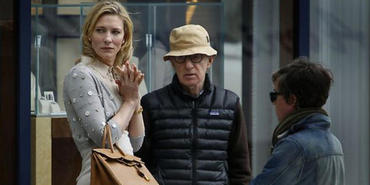
Blue Jasmine is beautiful to look at. San Francisco and NYC, two cities-antipodes look marvellous under the Javier Aguirresarobe's camera. But the best visual treats come from the seamless flashbacks that added so much to the story of paradise (with plenty of snakes lurking) lost. Whatever flaws the film might have, like using some characters or their convenient appearances in the right time in the right places as merely plot devices, don't matter much in presence of greatness whose name is Cate Blanchett. But let's imagine for a second that the movie was as much about one woman's loss of her fairy-tale life and about class differences in the modern society. Again, it seems it was about Allen integrated some of his life into Blue Jasmine: his memory of being in the eye of public disgrace and scandal, his own son's refusal to have anything to do with his father, and his perception of the greatest disaster of all - being shut off from the only thing in life that matters to him, which is making movies. In this case, Allen gave the face to his own nightmares, disasters, and regrets, and that is Jasmine's face in the final scene of his latest, dark and great film.
What Do You Think?
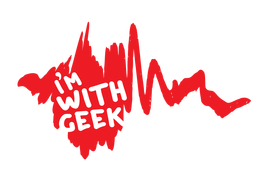
Are these the best Allen essentials?
Or does he have better films?
Let us know in te comments below!

 RSS Feed
RSS Feed
